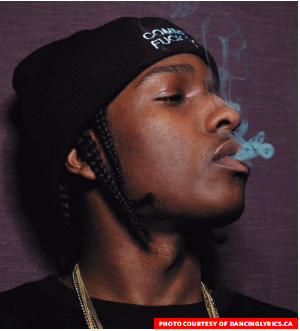
Rapper A$AP Rocky has been accused of slapping a female fan, and as a result, was dropped from the Yorkfest lineup, which he was scheduled to headline.
We don’t know if the accusations are legitimate, but regardless, this isn’t the first time an artist’s actions outside of their music have negatively impacted their career.
While I’m not a big A$AP fan myself I can’t help but ask, why? Why is it that in the world of art and entertainment, forgiveness is so fickle?
A$AP Rocky is a relatively new artist, whose background and presentation are fresh to the audience, so for him to be accused of assaulting someone doesn’t lend itself to simple forgiveness as easily as say, an artist who is well-established and loved by fans and critics alike prior to any accusations.
Take someone like Roman Polanski, a Polish director known for films such as Repulsion and The Pianist, as well as being accused of sexually assaulting a 13-year-old girl.
Though Polanski’s films will be admired for years to come, they take the attention off of his alleged crimes, and those who simply know of him will enjoy him for his films.
Compare this to an artist like Chris Brown, who was on the cusp of becoming a huge superstar before his incident of battery with Rihanna occurred.
Arguably, his career has taken a severe nosedive since then, and his enduring press is more a result of his public antics rather than his music. There are exceptions to this established/upcomer dichotomy; those that are simply not forgiven, like Billy Bob Thornton, who debuted his Canadian tour on Jian Ghomeshi’s show on CBC.
By explicitly disrespecting Ghomeshi, Thornton got booed from the crowd at his concert. Even now, a straw poll of Torontonians might show some ill will towards Thornton.
We often strive to compare artists and their art, to gauge their creations in a context that makes it meaningful to us.
But when the piece, the artist, and the receiver aren’t on the same page, the effect is lost.
This effect is doubled when we learn that the artists, our idols, might not be very good people. It’s an alienating effect, and our love for their art is part of what determines our capacity to forgive or forget the things they’ve done.
For the fan, it becomes more complicated than right or wrong. If an artist, who was there for me in my time of need and created the music I went to when I needed it most did something questionable, I’d most likely forgive and continue to support him/her.
A second chance is possible. But for an artist I don’t know much about and can’t relate to, who commits something that puts me in a position of indecision, chances are I won’t find myself supporting the artist much.
I appreciated Polanski well before I learned of his past.
Learning information of that nature about an artist I liked was, of course, discomforting to me, but I’d already invested myself emotionally in his work. As for A$AP Rocky, I wish him luck in his future university gigs.
Arian Shahnavazy
Contributor
https://www.youtube.com/watch?v=GTYFEDyU48E


